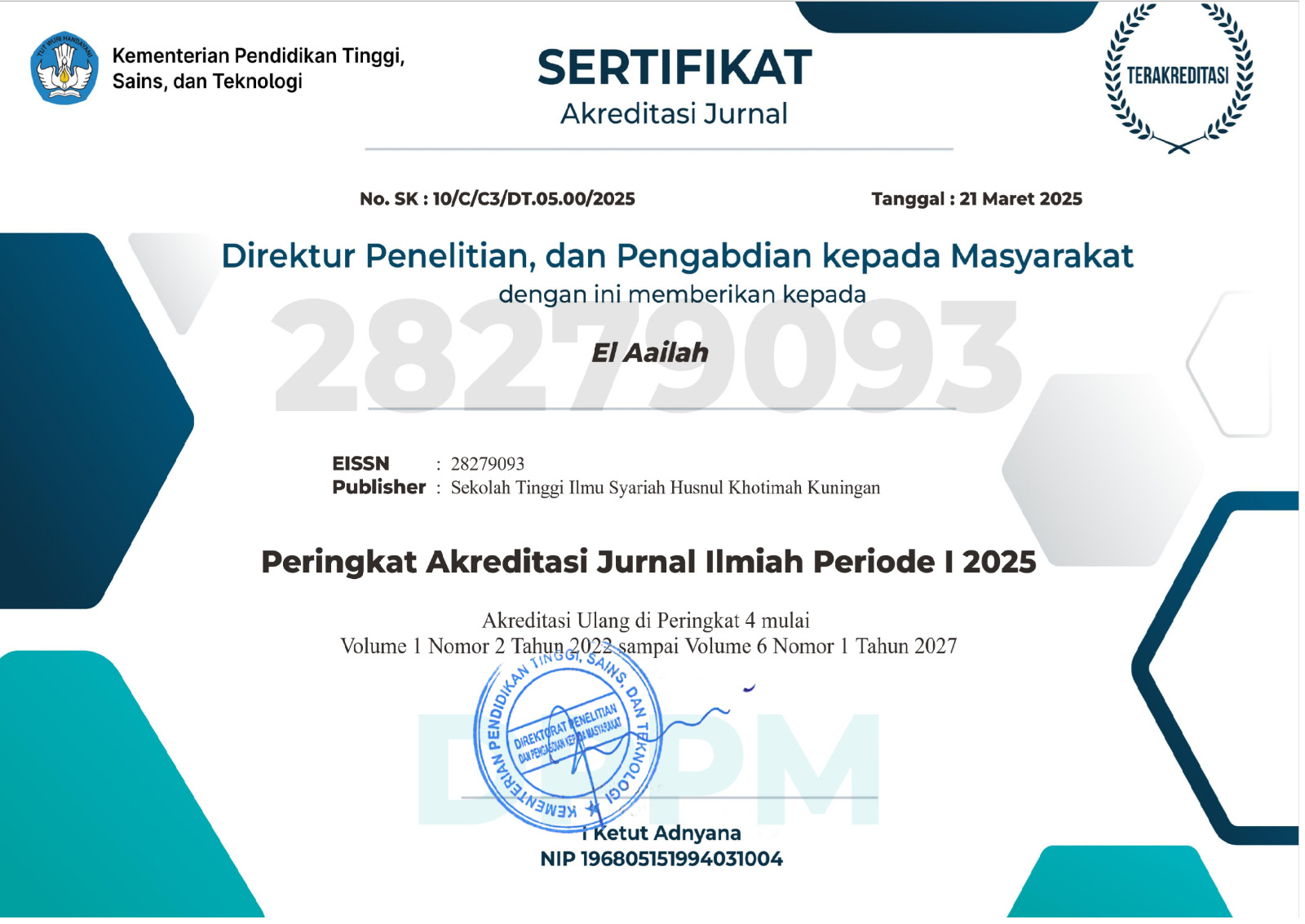PERBANDINGAN HUKUM ISLAM DAN POSITIF DALAM PENETAPAN NAFKAH PASCA CERAI
STUDI KASUS PENGADILAN AGAMA KUNINGAN
DOI:
https://doi.org/10.59270/aailah.v3i2.250Keywords:
Iddah Income, Mut'ah Living, Madhiyah Living, Child SupportAbstract
In determining the nominal post-divorce living, there was disagreement between the applicant and the respondent. So, the judge decides using his considerations in deciding the case. This research aims to determine the considerations of the Kuningan Religious Court judges in deciding case no. 0119/Pdt.G/2020/PA.Kng concerning the nominal amount of living as a result of divorce due to a disagreement between the applicant and the respondent and to analyze the conformity of the Kuningan Religious Court judge in deciding case No. 0119/Pdt.G/2020/PA.Kng regarding the nominal amount of living as a result of divorce due to a disagreement between the applicant and the respondent. The research method used by researchers is qualitative research using this type of data, namely data obtained from field research (field research). Then the data collection technique is by conducting interviews and documentation. Based on the research that has been carried out, it can be concluded that the considerations that the judge used in deciding case No.0119/Pdt.G/2020/PA.Kng were by looking at the ability, feasibility and claim. Moreover, the view of Islamic law and the law of positive considerations that judges use in deciding case No. 0119/Pdt.G/PA.Kng is in accordance with Islamic law and applicable positive law, as explained in the Al-Qur'an and the Compilation of Islamic Law (KHI). There are similarities between the basis of Islamic law and the basis of positive law used by judges, which have been explained in terms of both legal bases.
Downloads
Published
Issue
Section
License
Copyright (c) 2024 El 'Aailah: Jurnal Kajian Hukum Keluarga

This work is licensed under a Creative Commons Attribution-NonCommercial-ShareAlike 4.0 International License.





